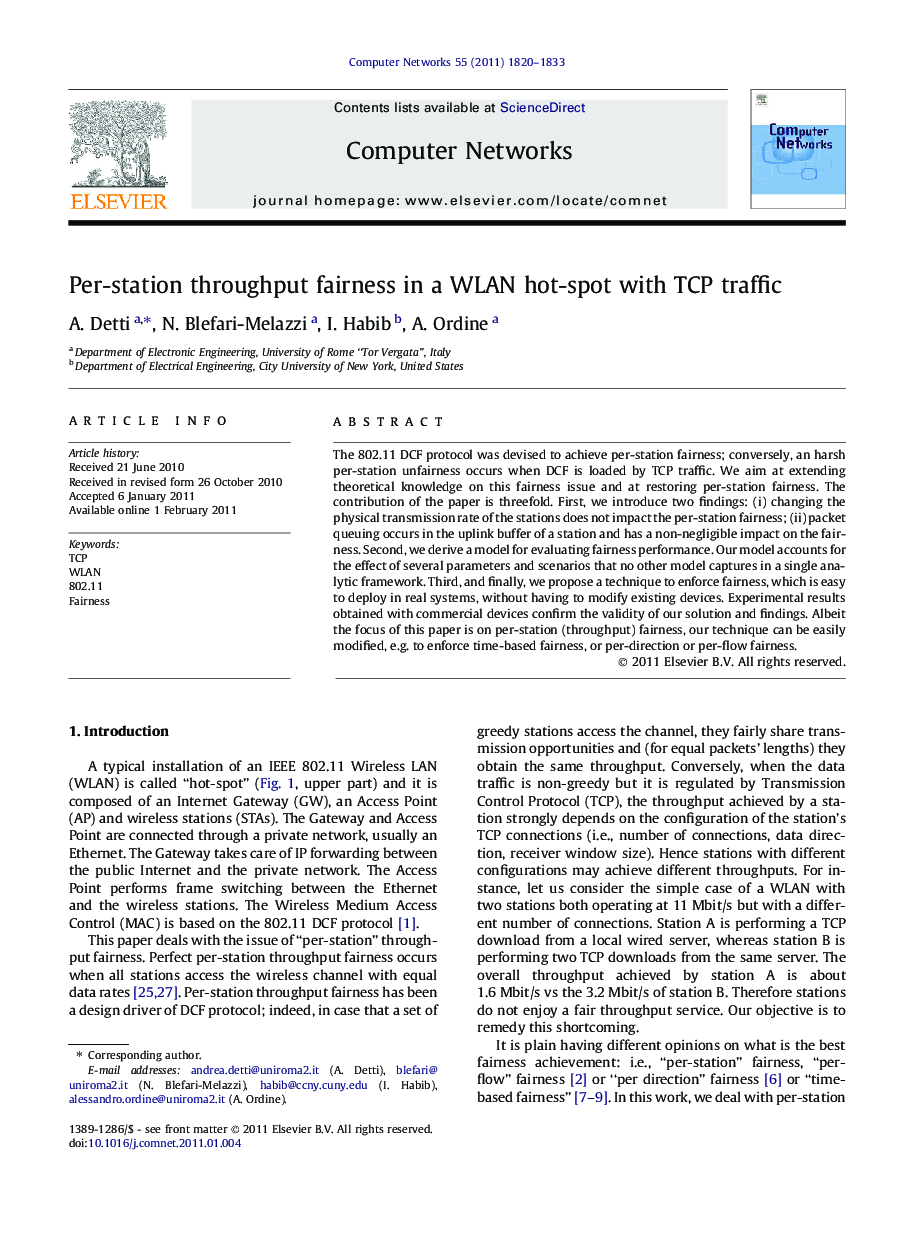| Article ID | Journal | Published Year | Pages | File Type |
|---|---|---|---|---|
| 451240 | Computer Networks | 2011 | 14 Pages |
The 802.11 DCF protocol was devised to achieve per-station fairness; conversely, an harsh per-station unfairness occurs when DCF is loaded by TCP traffic. We aim at extending theoretical knowledge on this fairness issue and at restoring per-station fairness. The contribution of the paper is threefold. First, we introduce two findings: (i) changing the physical transmission rate of the stations does not impact the per-station fairness; (ii) packet queuing occurs in the uplink buffer of a station and has a non-negligible impact on the fairness. Second, we derive a model for evaluating fairness performance. Our model accounts for the effect of several parameters and scenarios that no other model captures in a single analytic framework. Third, and finally, we propose a technique to enforce fairness, which is easy to deploy in real systems, without having to modify existing devices. Experimental results obtained with commercial devices confirm the validity of our solution and findings. Albeit the focus of this paper is on per-station (throughput) fairness, our technique can be easily modified, e.g. to enforce time-based fairness, or per-direction or per-flow fairness.
